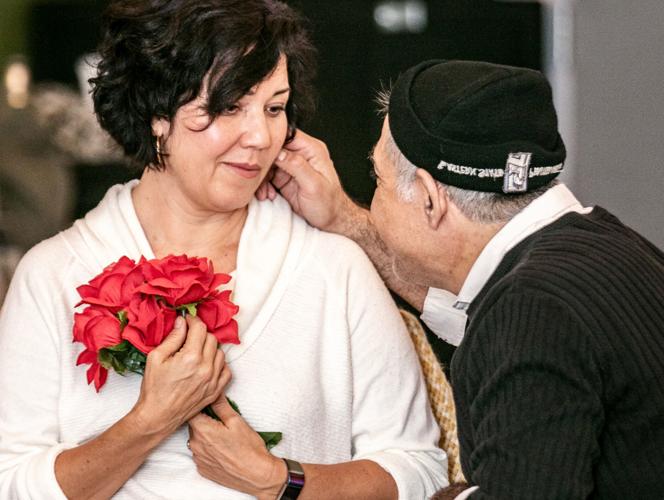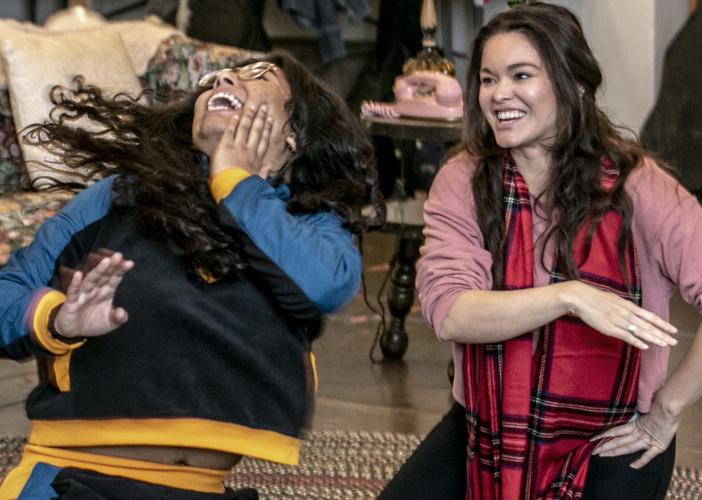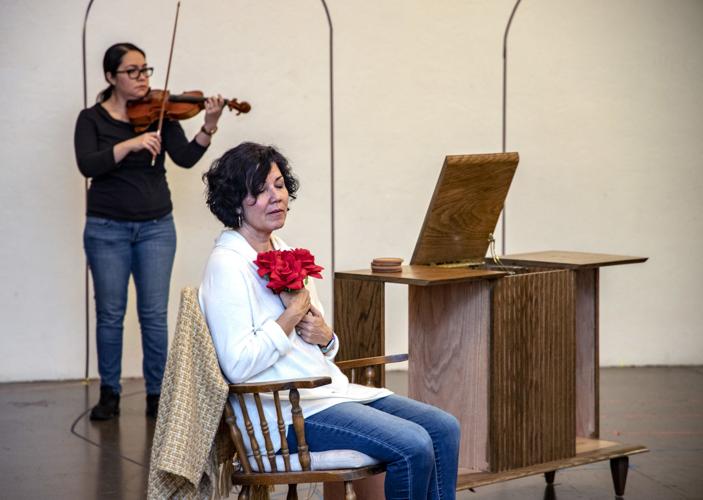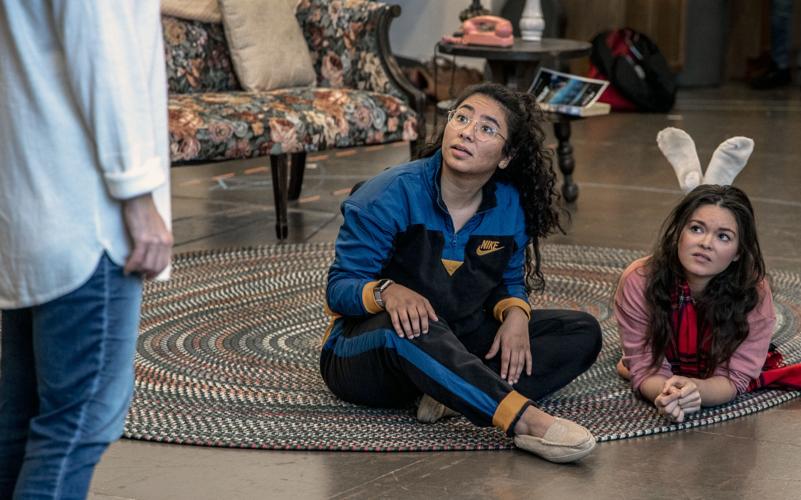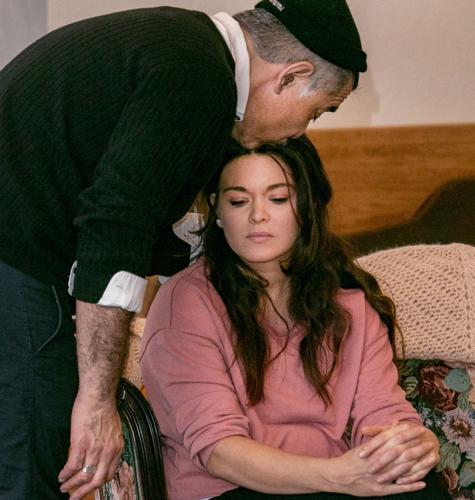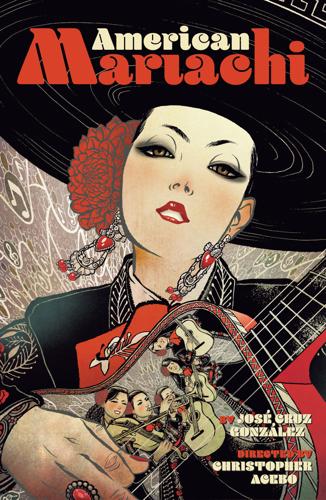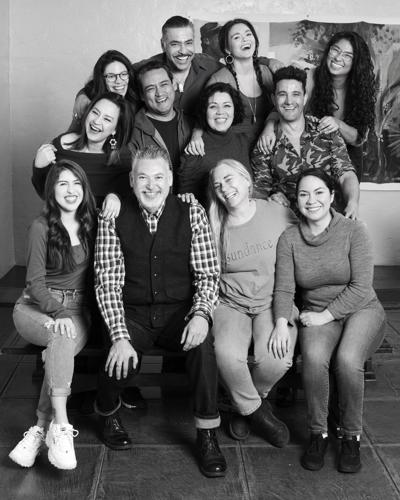Mariachi music was the soundtrack of José Cruz González’s youth.
The author of “American Mariachi,” Arizona Theatre Company’s next offering, listened to it as a boy when it was played in his family’s home.
And he never stopped listening.

“American Mariachi”, la próxima puesta en escena de Arizona Theatre Company (ATC).
Those early days hearing and loving the music led him to eventually audit a college class in mariachi.
“It was a journey for me because it was like learning a foreign language,” he says, adding he wasn’t musically inclined. “As time went on, I began to study with other teachers, and I started to learn about the culture of mariachi and to understand it in a deeper way than I ever thought I would.”
Along the way, he learned that mariachi wasn’t always open to females.
And so the idea for “American Mariachi” was born.

Ron Medvescek / Arizona Daily Star/
Amalia (Diana Burbano) con rosas en su mano, y la violinista Stephanie Swift Molina durante un ensayo de “American Mariachi”.
The story takes place in the 1970s. Amalia is suffering from dementia. She loves mariachi music and things shift for her when her daughter, Lucha, discovers an old record her mom frequently listened to.
“She plays it for her mother and Amalia lights up,” says González. “The record gets broken, so Lucha looks for other females to play with so they can learn her mother’s song. They have lots to battle to learn the music.
“It’s a beautiful play about music and memory, and it’s also about a woman’s journey. It celebrates family, music and culture.”
It was the music and the community surrounding it that convinced Christopher Acebo to direct the play.
“I was around 10 at the time the play takes place, and this music was prevalent,” says Acebo. “The play looks deeply at the art form within the mariachi community, and there was something about that era, the ’70s, that music and that community that spoke personally to me.”

Boli (Satya Chavez), izq., con Lucha (Christen Gee Celaya) durante un ensayo de “American Mariachi.” La obra se trata de cuando el mariachi no siempre estaba abierto a mujeres.
That’s easy to see as he leads a recent rehearsal. There’s a joy in the room that starts with him and spreads to the cast, which talks, laughs and spontaneously breaks into mariachi songs between rehearsing scenes.
That joy is not unusual with mariachi, says Tucsonan Stephanie Swift Molina, who has been playing the music for close to two decades. She is one of the musicians in the ATC production.
“I don’t know what it is,” she says about what makes mariachi so electric.
“It’s hard to explain. It’s something that calls to us and once that switch turns on for most people, it won’t go off.”
But this play is more than the music, says director Acebo.
“There are the family relationships, the challenges that occur in any family, particularly in the Latino culture,” he says. “Mariachi was such a male-dominated art form. I was curious about what it means to find courage not only in the world, but within your own family.”
There are several aspects of this play that Acebo thinks will resonate with the Old Pueblo.

Federico (Danny Bolero) and Lucha (Christen Gee Celaya) during rehearsals for Arizona Theatre Company’s upcoming performance of “American Mariachi” in Tucson, AZ, on Feb. 22, 2019 .
“Many Tucson audiences are deeply into mariachi music, but for those who may not be, this will give a glimpse into that art form in a profound way.”
There is another aspect that will speak to those of us here: A number of the musicians are Tucsonans. We’ve heard them at restaurants, at parties and at the International Mariachi Festival.
“American Mariachi” had its world premiere at the Denver Center’s Stage Theatre last year and played a few months later at San Diego’s the Old Globe Theatre.
ATC is the third company to mount the play (others are adding to their seasons, says González, though they haven’t been announced yet).
The San Diego and Denver productions got glowing reviews, but that is not what is memorable to the playwright.
“What was exciting about those productions is that there weren’t traditional audience members there,” says González. “They came from everywhere. There was this energy in the theaters. They hooted and howled, they sang along with you, and they come out really empowered with a story about their community.”

Cousins Boli (Satya Chavez), izq., y Lucha (Christen Gee Celaya), right, en un ensayo de “American Mariachi”. La obra tuvo su estreno mundial en Denver, Colorado el año pasado y unos meses después en San Diego.

Director Christopher Acebo, en centro en frente del elenco de “American Mariachi.”


